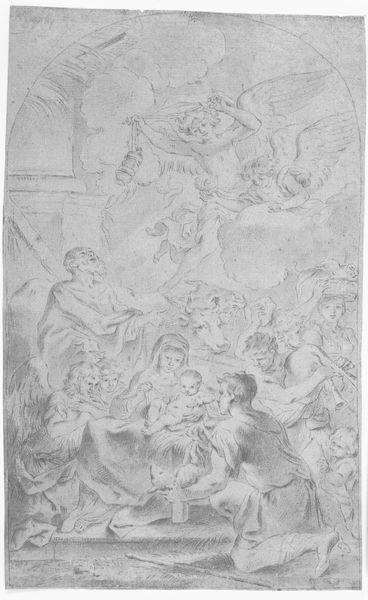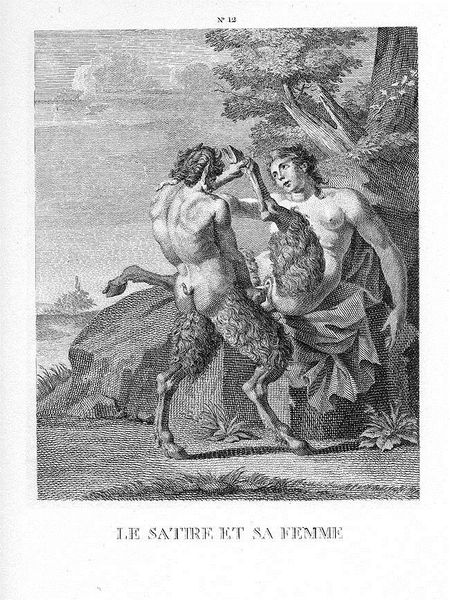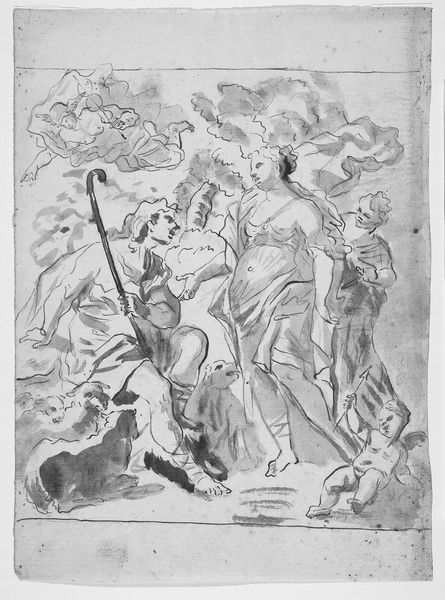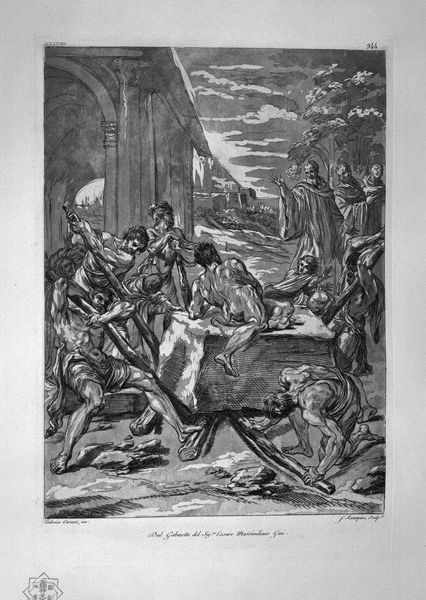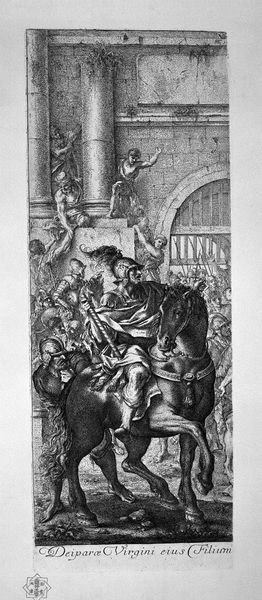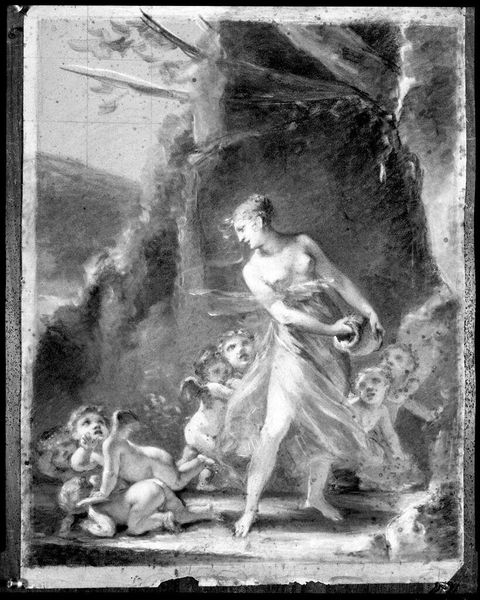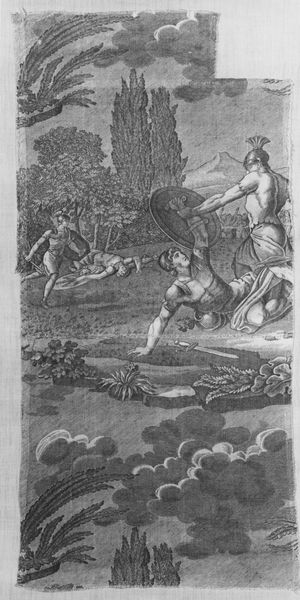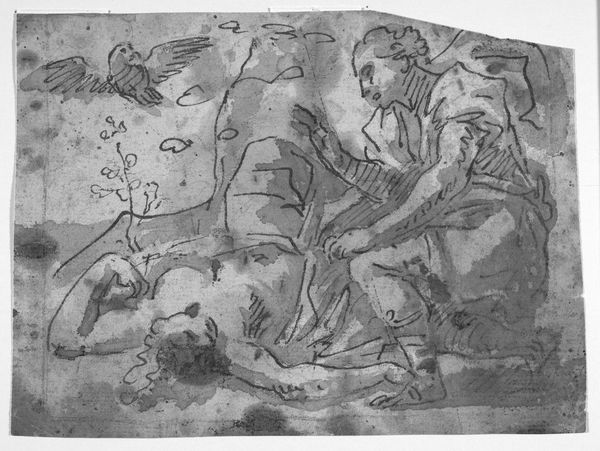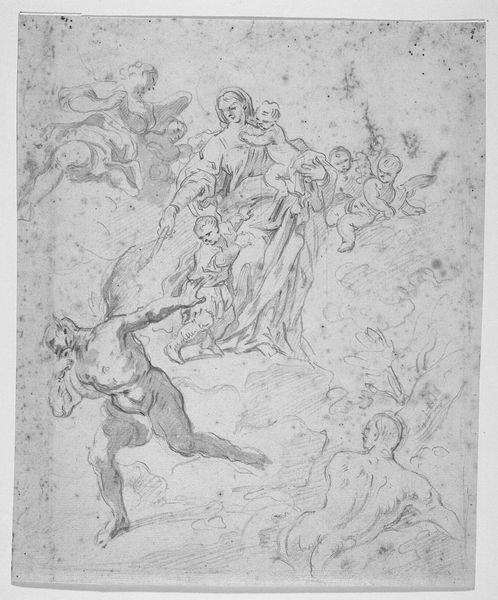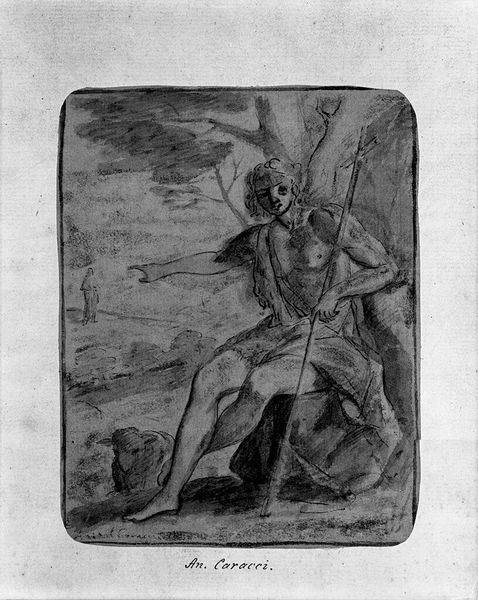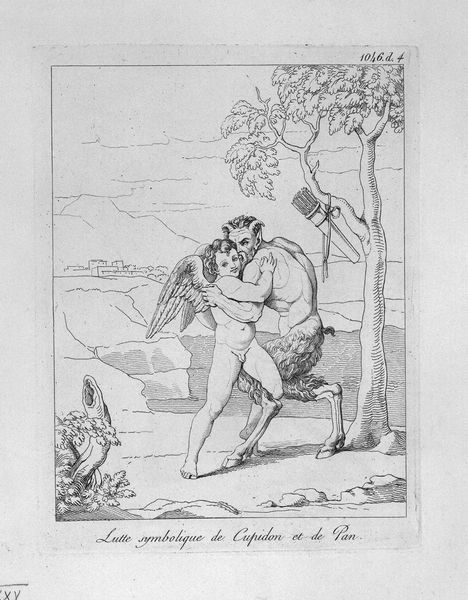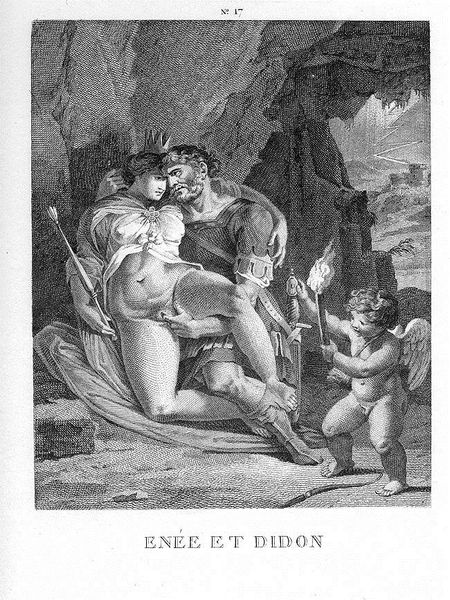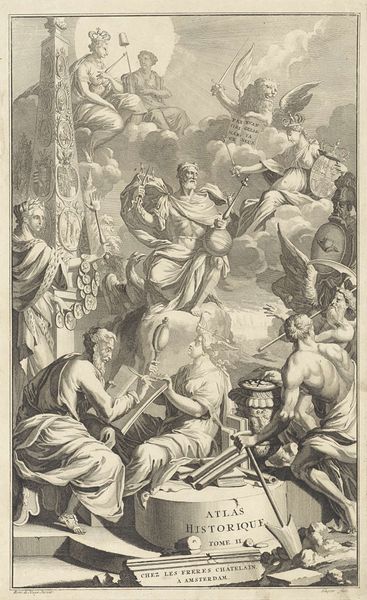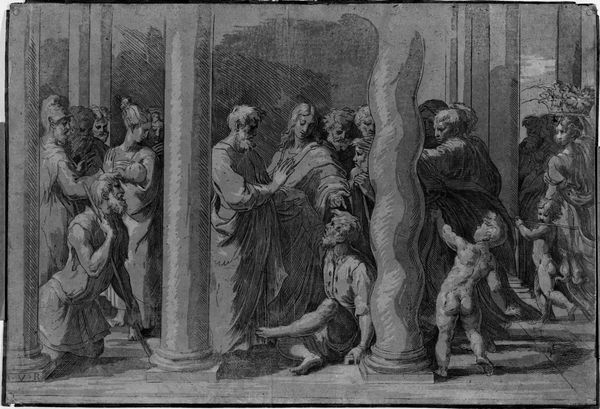
drawing, ink, engraving
#
drawing
#
neoclacissism
#
allegory
#
pencil sketch
#
landscape
#
figuration
#
ink
#
ancient-mediterranean
#
pen-ink sketch
#
history-painting
#
engraving
Copyright: Public domain
Editor: This is Giovanni Battista Piranesi's "Orpheus," a drawing done in ink. The figures seem caught between worlds; some are grounded in reality, while others ascend into a more ethereal plane. What's your read on this complex composition? Curator: I see a potent commentary on power and the artist's role within oppressive structures. Orpheus, traditionally a symbol of harmony and persuasion through art, is here rendered almost powerless before a panel of seemingly callous judges. Look at the seated figures: are they lawgivers, philosophers, or simply the elite? And consider who they are judging. Is it merely Orpheus, or art itself? Editor: That’s a very interesting way to think of it! I was focused on the two different planes: the grounded figures with their harsh judgment, contrasted with this…ascent. Is Piranesi suggesting art’s capability to transcend such constraints, perhaps into a form of liberation? Curator: Exactly! The swirling figures above are reminiscent of both classical allegories and contemporary social struggles. Is Orpheus's music freeing them from their earthly bonds? Or does that "freedom" reinforce existing power dynamics? Consider how Orpheus is portrayed as physically separate, his power perhaps neutralized, even as he performs. We must question whether the artistic and intellectual elites he plays for represent a truly benevolent force. Editor: I never thought about it in terms of power before! I’d only really seen it in the context of Neoclassical style and mythology. I guess I thought of the seated men more as classical philosophers or ancient thinkers rather than powerful elite. Curator: That is the magic of art! Its ambiguity forces us to think about how historical interpretations change over time, influenced by prevailing ideas of social justice, oppression and freedom of speech. Maybe these are indeed the classical philosophers, as you stated, and not 'powerful elites'. Editor: Right! I’m understanding how our own assumptions, shaped by today’s world, impact how we view even historical artworks. Thanks for a great new insight! Curator: My pleasure!
Comments
No comments
Be the first to comment and join the conversation on the ultimate creative platform.
